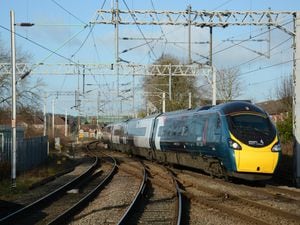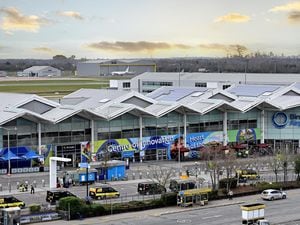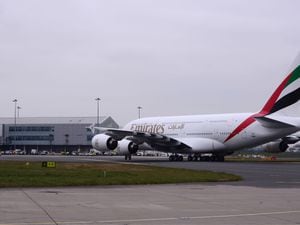Record petrol prices across region as cost hits 'dreaded milestone'
Average petrol prices in the West Midlands have exceeded £1.51 for the first time following Russia’s invasion of Ukraine.
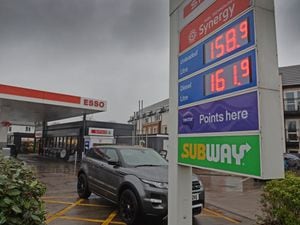
The typical cost of a litre of petrol at forecourts in the region is 151.25p. And the average cost of a litre of diesel is also at a record high, reaching 154.72p.
Spiralling prices are putting more pressure on families and also threaten to push up the cost of groceries as costs for deliveries go up. Hauliers and taxi firms also face extra costs, which may get passed to customers.
Some forecourts in the West Midlands have run short as people rush to fill up before prices increase.
AA fuel price spokesman Luke Bosdet said petrol hitting 150p per litre is “a milestone that millions of motorists have dreaded”, noting that some forecourts charged only £1 per litre less than two years ago.
He warned that drivers are being hit by “record pump prices, other inflation and tax rises, along with a raft of extra charges implemented or threatened by councils for motoring in city and town centres”.
The spiralling prices are adding to the cost of living to families directly as the petrol pumps. But it is also likely to see the price of delivered goods going up as firms pass on increased costs – and that could impact on the prices of groceries in stores.
Gerry Field, director at J J Field & Co Ltd in Dudley, said the firm was monitoring the situation but it could have a knock-on effect for customers. “Who knows what it could cost tomorrow?” he said. “They are changing it daily.
“We had a delivery just before this, but early predictions are to be prepared for a significant rise.”
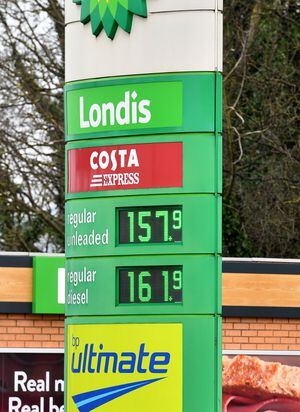
Supervisor John Cooper, of Hampson Haulage Ltd in West Bromwich, said fuel prices had been high before the conflict in Ukraine even started.
He said: “Our fuel costs have risen 30 to 40 per cent over the last two to three months.
“Fuel is our biggest issue and I think there will be a knock-on effect.”
Shaz Saleem, who runs Beacon Taxis in Upper Gornal, Dudley, and Express Taxis Halesowen, said: “Any extra cost is always a burden.
“It’s something we will just have to deal with. We have no control over it. It will impact the drivers. If they can’t make their money they will think, is it worth it?”
He said the number of drivers across both bases had already reduced during the pandemic.
“Before the pandemic we had 120 to 130 drivers, now we have about 80,” said Mr Saleem.
“We’ve had to put fares up this year but it’s the same with other companies across the Midlands. We can’t keep putting them up – it’s not fair on the customers, but we need to balance the costs to break even.”
Anton Gunter, managing director at Telford-based Global Freight, said firms are braced for the increased costs – and that large stores are likely to pass those costs on to customers.
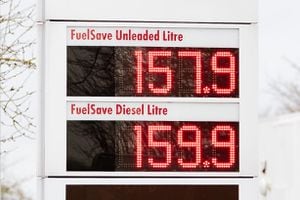
He said: “We are probably going to see an increase in fuel costs which means an increase in shipping costs. Shipping lines like to make money, they make money any way they can and if it is a ‘war surcharge’ then certainly they will charge it. We are expecting air freight costs to rise and with the difficulties in potential flight times with anything that has to go around Ukraine we are going to see increased shipping charges.”
He added: “From the freight industry somewhere along the line I think we are going to be hit with extra fuel charges, be it hauling freight from ports to destinations in the UK, be it moving freight around, I cannot see the big shops stomaching those charges, they never do. Unfortunately it is just going to mean another price to pay.”
Richard Sheehan, chair of Shropshire Chamber of Commerce said increased fuel costs are another headache for county firms. He said: “It is very clear that fuel prices, along with energy prices are a huge concern for businesses, particularly where they have to move goods or services, either inwards or outwards. It is really difficult for them.”
Gordon Balmer, director of trade body the Petrol Retailers Association, asked motorists not to panic buy after some motorists were spotted stocking up amid fears prices could continue to rise.
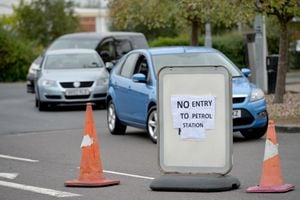
He insisted: “There is no shortage of fuel at UK refineries, and we do not expect any significant disruptions to supply”.
He said: “In recent years, Russian crude oil and liquid natural gas has accounted for just 10 per cent of imports to the UK.
“Norway and the United States combined supply the UK with nearly 25 million tonnes of crude oil and liquid natural gas per year while Russia has been supplying the UK with under four million tonnes.”
Many forecourts ran empty in September last year due to panic buying of fuel linked to a shortage of lorry drivers.
Mr Balmer added: “We expect the rise in global oil prices to feed through into UK petrol pumps in the coming weeks, just as it will across the globe.
“Our members will continue to work to keep prices as low as they can.”
British Retail Consortium director of food and sustainability Andrew Opie said: “Despite supermarket petrol stations seeing a rise in sales, fuel levels remain high with no disruption to daily deliveries.
“While end of week sales are always higher as the public prepares for the weekend, some consumers may be trying to anticipate any future changes in oil prices.”
Prime Minister Boris Johnson has already warned that “one of the risks of Putin’s venture is that there could be a spike in ... oil prices”.
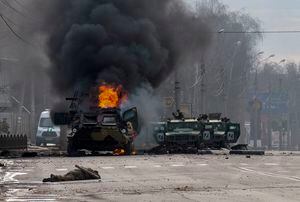
The price of these fuels is linked to Brent crude, the most important oil used in Europe.
The cost of a barrel of Brent crude recently rose to more than 100 US dollars for the first time since 2014 as Russia moved into Ukraine.
This has happened due to fears oil might become a lot harder to trade.
Russia is the world’s second-biggest oil producer, and mainly sells to other European countries. But with trade closed off, it means we are now having to source fuel from other countries.
Tom Tugendhat, chair of the Commons Foreign Affairs Committee, has warned that petrol prices could rise to “significantly” more than £1.70 a litre.
RAC fuel spokesman Simon Williams said: “The average price of both fuels has shot up by more than 1.5p since Thursday.
“Despite the wholesale market calming slightly at the end of last week as oil fell back under 100 US dollars per barrel, prices at the pump will continue to go up as retailers buy in new stock at much higher prices.”
“This week will be an important one in terms of the oil price as it’s likely to reveal the speed of the inevitable upward trend or the extent of the volatility in the market.”

